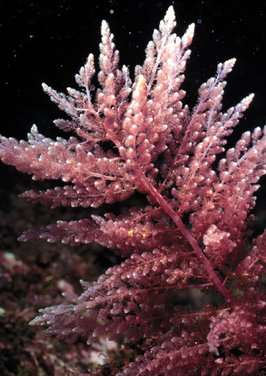"You live right on the beach here (in Seacow Pond) and our ancestors used seaweed for everything, for their animals, for their fertilizer, the whole thing,” he told the Canadian Press.
“This is 100 per cent natural. As the storms toss it ashore on the beach, we gather it, dry it, process it and feed it.”
Dorgan said he noticed his cows were healthier and produced more milk, which caught the interest of a researcher in Nova Scotia.
According to CBC, Rob Kinley, an agricultural scientist at Dalhousie University at the time, tested Dorgan’s feed and found it reduced the amount of methane produced by cows by nearly 20 per cent.
That’s when Kinley tested various other seaweeds to find that one in particular, Asparagopsis taxiformis was able to eliminate methane almost completely.
"I was testing one day a series of samples when all of a sudden it looked like my instruments were having problems, and I wasn't able to see emissions from one particular sample," Kinley, now a research scientist in Australia, told CBC. "So I did it over and over again and lo and behold the methane emissions were eliminated.”

Asparagopsis taxiformis
Dorgan sold his herd in 2011 and is trying to get his seaweed feed approved by the Canadian Food Inspection Agency to be sold to farmers.
Kinley said it could take up to five years to get a commercial feed to market, but said this feed could be a “game changer” for reducing greenhouse gases.